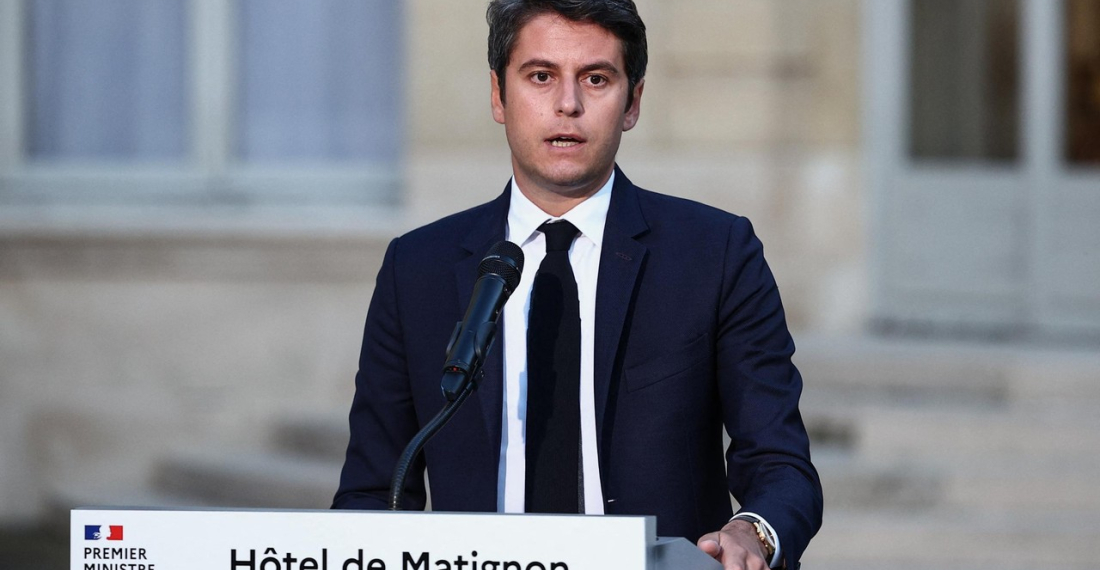French Prime Minister Gabriel Attal announced his resignation from the government of President Emmanuel Macron on Monday (8 July), following his heavy defeat in the second and decisive round of the French parliamentary elections. The Nouveau Front Populaire, a left-wing alliance, appears to have won the parliamentary elections against all odds.
Attal added that he would "stay on as long as necessary" in the context of the 2024 Summer Olympics in Paris, which begin in the capital later this month. In his speech, Attal added that "no majority can be led by the extremes". But he acknowledged the "historic result" achieved by the far right.
Attal and Macron's centrist coalition has become the second-largest bloc in parliament, despite the defeat. The alliance is likely to retain around 150 to 170 seats from the 250 the coalition previously held. The French lower house has a total of 577 seats.
In France, the prime minister is appointed by the president, but the candidate must be approved by parliament. So the prime minister often comes from the party or coalition with the most seats. Whether this will work for the Nouveau Front Populaire remains to be seen.
Attal became France's youngest prime minister in January this year. He was 34 at the time.







